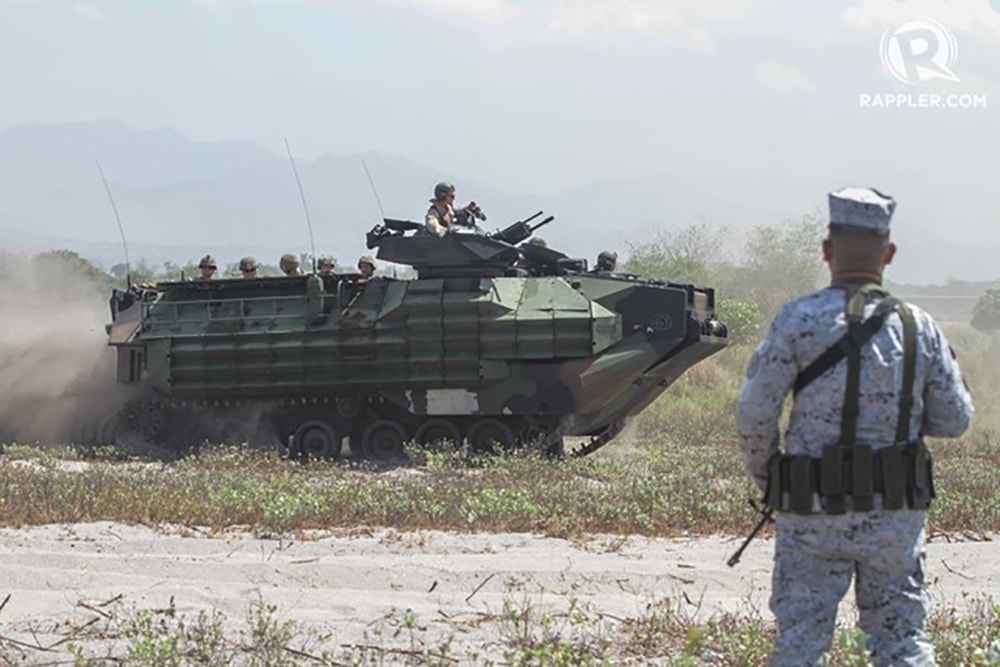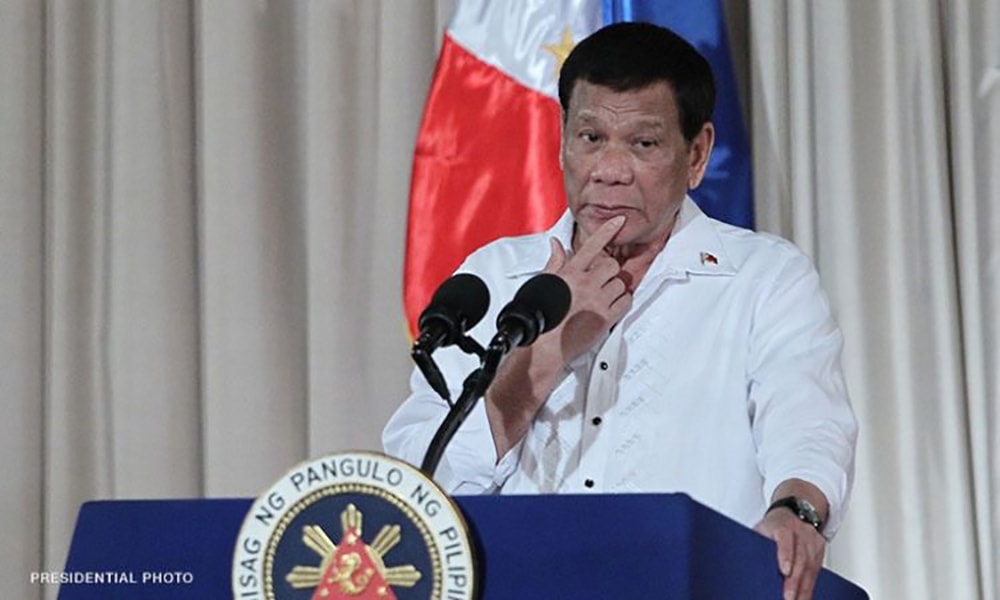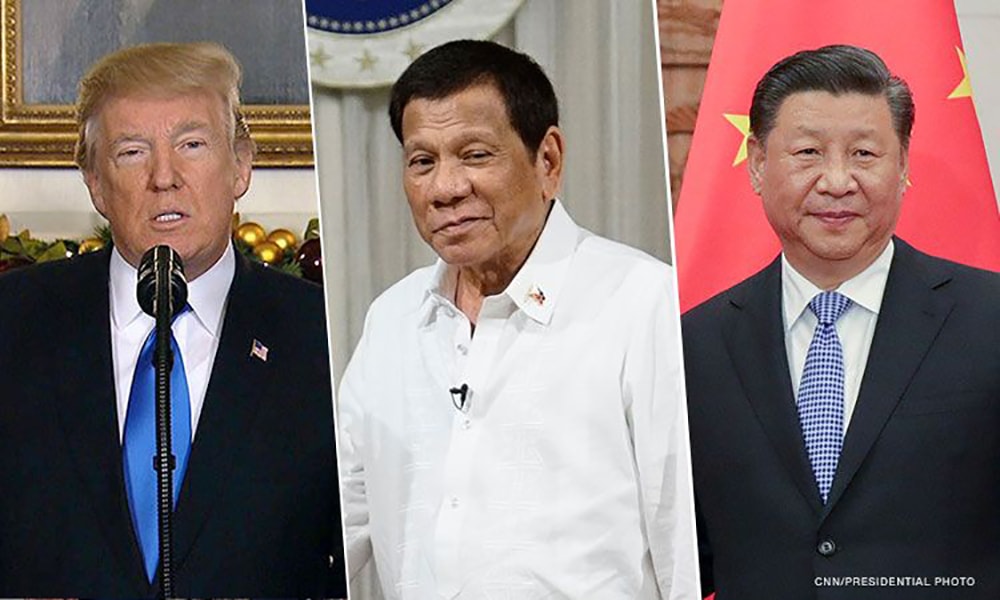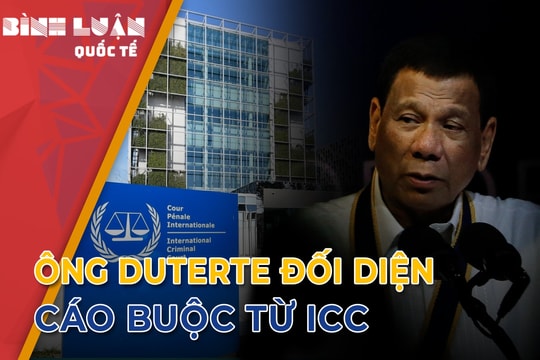Threatening to cancel military treaty with the US, what does the Philippines want?
(Baonghean) - Last weekend, the US-Philippines relationship was once again stormy, when Philippine President Rodrigo Duterte directed the Secretary of the Presidential Office, Salvador Medialdea, to request the Ministry of Foreign Affairs to send an official notice to cancel the Visiting Forces Agreement (VFA) with the US. This threat was actually made on January 23 and was extended by Mr. Duterte for 1 month so that the US could restore the visa of a Philippine Senator. However, even though the deadline has not yet passed, the Philippine government has "boldly" threatened to cancel this agreement. Is it possible that the Philippines is impatient with its US ally?
THE FAILING ALLY
This is not the first time that the administration of Philippine President Rodrigo Duterte has issued warnings or threats to cancel military agreements or treaties, or even “turn its back” on its US ally. Looking back over the past few years, the Philippines-US relationship under the Duterte administration has witnessed many difficulties.
Last January, the Philippines unexpectedly called for a review of the 1951 Mutual Defense Treaty (MDT), despite it being the foundation of the US-Philippines strategic alliance. More recently, in December 2019, President Duterte banned two US Senators, Richard Durbin and Patrick Leahy, from visiting the Philippines due to disagreements related to former Philippine Justice Secretary Leila De Lima.
Therefore, observers do not seem too surprised when Mr. Duterte recently continued to threaten to terminate the Visiting Forces Agreement (VFA) with the US.
 |
| Philippine and US soldiers conduct a joint Balikatan (Shoulder-to-Shoulder) landing exercise in Zambales, Philippines on April 11, 2019. Photo: Rapler |
It should be recalled that the VFA was signed in 1998 and officially took effect in 1999, allowing thousands of US troops to be stationed in the Philippines on a rotational basis to participate in military exercises as well as humanitarian assistance operations. On February 6, Philippine Foreign Secretary Teodoro Locsin informed the Senate that President Duterte had asked him to send a notice of termination of the VFA to the US. Mr. Duterte also planned to discuss this issue with his US counterpart Donald Trump by phone soon.
This is considered a response by President Duterte after the US canceled the visa, refusing entry to Philippine Senator Ronaldo dela Rosa. The US Embassy in the Philippines did not explain the reason, but it seems that the decision stemmed from the allegations of bloody massacres in the anti-drug campaign during Mr. Rosa's more than two years as commander of the Philippine National Police.
Looking back, the war on drugs in the Philippines has claimed the lives of more than 5,000 people. However, it is important to note that, according to Article 9 of the VFA, the agreement between the two sides will remain in effect until the end of the 180-day period, from the time one side notifies the other in writing of its desire to cancel the agreement. This means that even if there is a declaration, President Duterte still needs to have an official document. And even if there is a document, the two sides still have half a year to consider and negotiate whether to cancel or not!
 |
| Philippine President Rodrigo Duterte. Photo: Presidential |
WALKING ON THE TIRE
In fact, according to observers, the latest move by Philippine President Duterte is not simply a response to the US, related to the visa issue of a senator. This is probably a new bargaining chip that Mr. Duterte wants to send to his long-time ally, the US, despite the dissuasion of many Philippine government officials. The US is the Philippines' largest defense ally, but recently, President Duterte has not hesitated to hide his discomfort with Washington and tends to be closer to Beijing.
It is understandable, because President Duterte knows that the US really needs allies like the Philippines to maintain its presence and influence in the Asia-Pacific region. Meanwhile, Manila is in need of the large economic cooperation contracts and agreements that China has promised to this country.
Of course, President Duterte knows better than anyone that once the VFA is canceled, the Philippines will be the one to suffer the most. Foreign Minister Teodoro Locsin recently warned that this move could end the US's $550 million security aid and training and intelligence support activities with the Philippines. Not to mention, the economic relationship between the two sides is also at risk of becoming cold.
At the same time, the US side may also seek to cancel many bilateral military agreements, including the Mutual Defense Treaty or the Defense Cooperation Agreement; and at the same time stop more than 300 joint training operations with the Philippines. More broadly, Philippine officials also warn that abandoning a top security agreement with the US will weaken the country's security, as well as make it difficult to prevent aggressive actions in the East Sea - a sea area that is disputed between the Philippines and China.
 |
| Philippine President Rodrigo Duterte is “walking a tightrope” in relations with the US and China. Photo: CNN, Presidential |
Therefore, in a statement late last year, Philippine Foreign Secretary Locsin declared that the Philippines would maintain relations with the US as its sole military ally, but on the other hand, he did not believe that Manila needed to contain Beijing. This also means that the Philippines would not choose to stand on any side, especially in the context of leading powers such as the US and China still in a war for influence in the region.
And that, Manila wants to maintain a beneficial relationship with both the world's leading producers and markets. However, Manila probably understands that both China and the US will certainly not be satisfied so that the Philippines can be assured of being a "profitable fisherman". There will be very difficult bargaining terms that President Duterte will have to consider carefully. It could be the US's security commitments, or whether the economic cooperation agreements that China has committed to are just "pie in the sky" or not?


